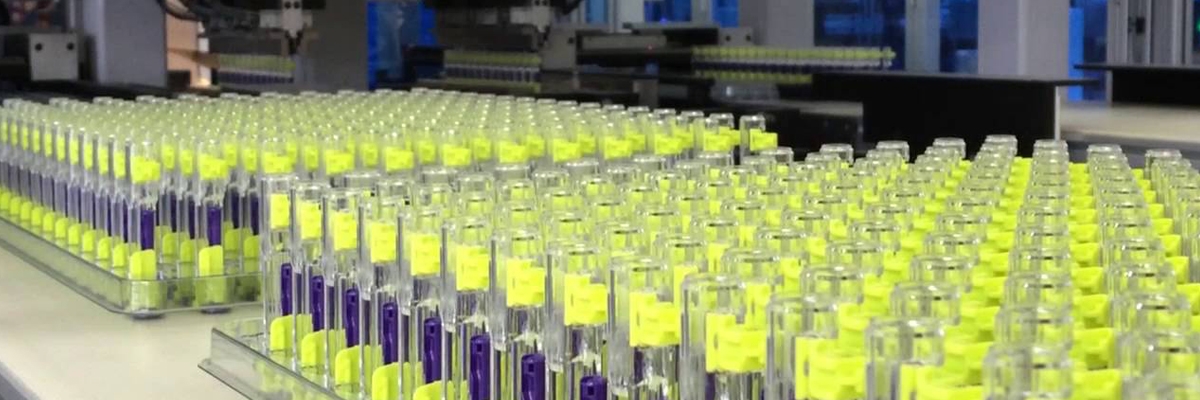NC Simulation Software Verifies Machining Paths—A Critical Step in the Build Process
MGS Mfg. Group (Germantown, WI)—a full-service provider of manufacturing solutions to the plastics industry with services like injection mold design and build from prototype to multicavity production tooling systems, from multi-action to multishot in the medical/healthcare, caps/closures, electronics, automotive and consumer products and industrial markets—uses CGTech’s (Irvine, CA) VERICUT CNC machining software to verify its machining paths.
According to MGS Mfg. Marketing Director John Berg, the company faces many challenges due to the complexity and volume of work. “We have established a strong reputation as one of the ‘go-to’ shops in North America for innovative and intricate injection molds,” he states. “Because the kind of tooling we are building (multishot/high cavity/multiple action, etc. is more involved than ever before, our lead-times for these types of molds are growing accordingly. We’ve invested in new machining technology—high-speed, five-axis, robotic automation and CMM integration. We move steel around quickly and very accurately. Five-axis machining is an effective time-saver, but programming is challenging. Proving the path is especially critical. Our goal is error-free production.”
MGS maintains tight tolerances. Berg notes that the company can hold ±.0001 of an inch if necessary, but that is not the norm. For many of its customers, MGS manages tolerances of ±.0003 to ±.0005. “Finishes in the EDM can go as fine as 4 Ramax and steel can be polished to an A3 finish, which is an optical grade,” he notes. “We will use an outside, specially dedicated source for finer finishes.”
Verification of the machining path is a critical step in the build process, Berg maintains. “Errors during any phase of a program are problematic and cost time and money,” he affirms. “Errors or miscalculations made in machining can be catastrophic because of their wide impact and the ripple effect they can have. A mistake made during a machining operation may very well render the steel block obsolete and could likely damage the machine center. Scrapping a block of quality steel is already painful to the wallet—and to the clock. If that machine goes down for repair, it impacts the entire workflow, timelines and profitability of all current projects.”
When it came time to choose the CAM program to suit its needs, MGS believes that the responsibility of choosing equipment and technology falls to the users—the toolmakers, designers, programmers and engineers responsible for accurate and timely delivery. “To be accountable for the significant investments MGS makes in our tool shops, users perform the appropriate due diligence in product selection—researching available solutions and a methodical real-world evaluation. VERICUT’s performance reputation was a key attribute in its selection. Subsequent machining trials during parallel path operations proved its worth.”
CGTech Marketing Communications Manager Bryan Jacobs points out that CNC machine simulation detects collisions and near-misses between all machine tool components such as axis slides, heads, turrets, rotary tables, spindles, toolchangers, fixtures, workpieces, cutting tools, and other user-defined objects. “You can set up ‘near-miss zones’ around the components to check for close calls, and even detect over-travel errors,” he comments. Additionally, the program supports G-codes and provides “multi-axis support for milling, drilling, turning, grinding and EDM machines; simultaneous mill/turn on different spindles and workpieces; and automatic workpiece transfer to pick-off or sub-spindles.
Berg explains that VERICUT defines its products in a straightforward way. “The program simulates and verifies CNC machining paths to detect errors and collisions (crashes and gouges) or other areas of inefficiencies,” he explains. “We see it as a flight simulator. Our lead programmer actually refers to it as a video game for CNC machining. It provides an accurate look at the path –how the CNC machine will perform according to the program. If, through VERICUT, we find there is an area of the programming that needs adjustment, instead of an actual error, we feel only virtual pain, not machine repair downtime or scrapped steel.”
Another key attribute of VERICUT is its use of open source code, Berg adds. The XML file format enhances the efficiencies of the MGS programming team, facilitating the company’s ability to augment the application’s capabilities to suit its workflow, and develop proprietary enhancements to the software.
“VERICUT has proven itself as a key part of our technology investments to support our quality, time and delivery improvement initiatives,” Berg affirms. “It facilitates our goal of eliminating the need for rework (welding, for example)—improving quality and repeatability, and saving MGS and our customers time and money.”
Article published in MoldMaking Technology, June 2012 (Web link)
 Germany
Germany Italy
Italy USA
USA South Korea
South Korea UK
UK India
India France
France China
China Japan
Japan
